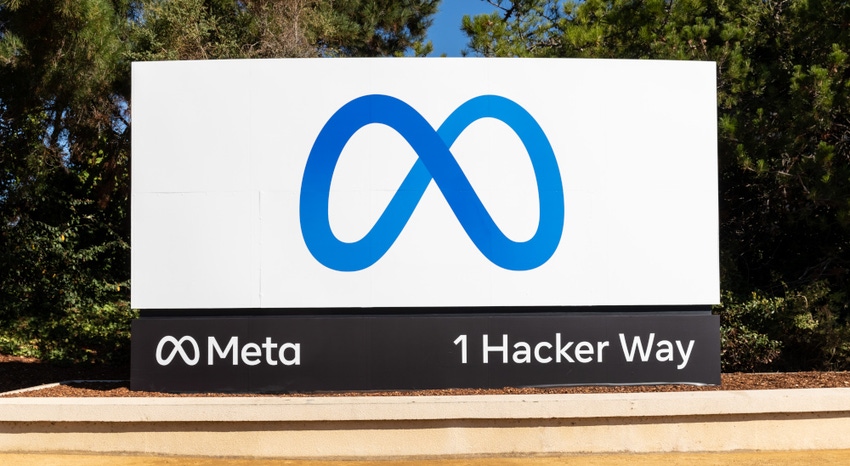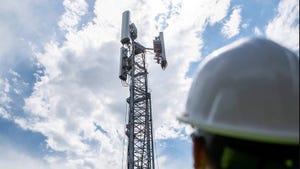Meta hits back at telcos’ ‘fair contribution’ demands
Social media giant Meta has weighed in on the ‘fair contribution’ debate insisting the campaign to force Big Tech to pay for network infrastructure costs is ‘not the solution’.
March 24, 2023

Social media giant Meta has weighed in on the ‘fair contribution’ debate insisting the campaign to force Big Tech to pay for network infrastructure costs is ‘not the solution’.
In a post titled ‘Network fee proposals are based on a false premise’, Meta makes the point that network fee proposals (as it puts it – there seems to be a few terms associated with the argument) don’t recognise that its ‘investments in content drive the business model of telecom operators.’
Meta sees ‘no credible evidence of an investment gap’ in fixed network capacity or mobile coverage, and points to the investments in network infrastructure it is already engaged in which is measured in the billions of dollars.
“We recognise the financial challenges that European telecom operators now face after decades of strong performance,” says the post, co authored by Kevin Salvadori, Vice President, Network and Bruno Cendon Martin, Director, Head of RL Wireless. “However, proposals by some European telecom operators to impose network fees on Content Application Providers (CAPs) such as Meta are not the solution. Network fee proposals are built on a false premise because they do not recognise the value that CAPs create for the digital ecosystem, nor the investments we make in the infrastructure that underpins it.
“Telecom operators and CAPs are symbiotic businesses, occupying different but complementary roles in the digital ecosystem. Every year, Meta invests tens of billions of euros in our apps and platforms – such as Facebook, Instagram and Quest – to facilitate the hosting of content. Billions of people go online every day to access this content, creating the demand that allows telecom operators to charge people for internet access. Our investment in content literally drives the revenue and business model of telecom operators.”
The point being made is that without the content that users want to access, there wouldn’t be much need for high-speed, high-capacity networks – so just by existing, content providers are make it possible for telcos to sell next gen connectivity.
It goes on to detail how much cash it itself is spending on global internet infrastructure, which often takes the form of laying undersea cables. Apparently since 2017 the firm has dropped more than $100 billion of capex and opex in global digital infrastructure, including billions of euros in Europe. In 2022 alone we’re told it invested over $30 billion globally in digital infrastructure, ‘with a capex to revenue ratio in line with or higher than that of major European telecom operators.’
“But there’s much more to it than that. At Meta, we also invest to sustainably build and improve complementary infrastructure to make the internet ecosystem more reliable and efficient. Over the last decade, CAPs have collectively invested over $880 billion in global digital infrastructure, including approximately $120 billion a year from 2018 to 2021. These infrastructure contributions made by technology companies save telecom operators around $6 billion per year.”
The authors hammer this point home by pointing out Meta has deployed a ‘Content Delivery Network’ (CDN), which included ‘an extensive European fibre network, and point out it doesn’t charge telecom operators for this.
The core tenet of the fair contribution argument that many European telcos make is that rolling out new infrastructure is expensive, and that their margins are not increasing to recoup the costs of doing it. While making the point that AR devices will not cause network capacity constraints in the future, the post adds: “5G network costs are also proving much less expensive than previously thought. With Massive MIMO radio improvements, telecom operators are seeing overlay mid-band (3.5GHz) 5G network deployments achieving similar propagation to 4G networks at 2.1GHz, resulting in dramatically lowered 5G network rollout costs with reuse of existing passive site and transport network assets.”
They weave in a lot of talk about the metaverse, VR and AR as you would expect from Meta, which has pivoted itself towards these nascent areas. But their main points are that it is paying a lot of money already towards networks, and that rather than being some parasitic entity getting rich off the back of telco’s hard labour, its services are the reason telcos even have a business model.
It’s refreshingly frank stuff, but we’re sure telcos might take issue with some of it – particularly with the perception that the 5G roll out has been ‘less expensive than previously thought’.
The social media firm/metaverse champion makes a good case for itself and reveals some of the flaws in the arguments of fair contribution. If you are of the persuasion that Big Tech should have to pay up, the fact firms like Meta have thrown billions into things like undersea cables which make the internet work is a hard one to come back on.
However, even if you side with Meta and the like, there remains the problem that while content might make it feasible that someone would want a 5G connection, that doesn’t mean operators have been able to charge any more for it than they were for 4G – so the problem of recouping investment in infrastructure remains, at least as the operators see it. The post even seems to acknowledge that by saying ‘we recognise the financial challenges that European telecom operators now face.’
The idea that primarily US based firms like Amazon, Facebook and Google were simply going to be shamed into handing over buckets of money to European operators like Telefonica and Orange to plump up their margins never seemed that plausible. While the debate will surely go on – you can read our summery of the pros and cons here – this post by Meta serves as a pretty strong rebuttal to the idea. But the problems remain.
There are other ways of crunching the problem of telcos not making not as much margin as they’d like – such as examining the wisdom of extortionate spectrum auctions governments set up, the regulation that impedes M&A, and a flat pricing model model which means higher usage and contract upgrades to 5G don’t necessarily lead to ARPU growth.
All these are big, fundamental and historic pillars of the telecoms sector and it’s not easy to see how any of them can be reformed, or whether there is much desire to do so. Perhaps it was always just easier to ask for a wad of cash from other firms who look like they can afford it instead, but if Meta’s response is anything to go by, Big Tech ain’t having none of it.
Get the latest news straight to your inbox. Register for the Telecoms.com newsletter here.
About the Author(s)
You May Also Like











_1.jpg?width=300&auto=webp&quality=80&disable=upscale)


.png?width=800&auto=webp&quality=80&disable=upscale)